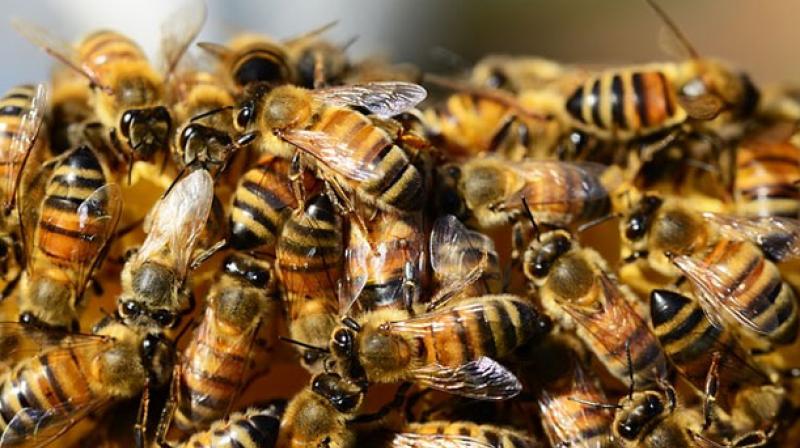Scientists discover 27 new viruses in bees
Among the new viruses the team identified was one that is similar to a virus that infects plants.

An evidence of 27 new, previously unknown viruses in bees has been found by a team of international researchers.
The finding could now help scientists design certain strategies to prevent the spread of viral pathogens among these important pollinators.
The team collected samples of DNA and RNA, which is responsible for the synthesis of proteins, from 12 bee species in nine countries across the world to investigate viruses in bees.
Next, they developed a technique that efficiently detected both previously identified and 27 never-seen-before viruses belonging to at least six new families in a single experiment.
Research scientist at Bristol Myers Squibb, David Galbraith said, "Despite the importance of bees as pollinators of flowering plants in agricultural and natural landscapes and the importance of viruses to bee health, our understanding of bee viruses is surprisingly limited."
Among the new viruses the team identified was one that is similar to a virus that infects plants.
"It is possible that bees may acquire viruses from plants, and could then spread these viruses to other plants, posing a risk to agricultural crops," said Christina Grozinger, distinguished professor of entomology and director of the Center for Pollinator Research at Penn State.
The team also found that some of the viruses exist in multiple bee species -- such as in honey bees and in bumble bees.
Galbraith added, "This finding highlights the importance of monitoring bee populations brought into the United States due to the potential for these species to transmit viruses to local pollinator populations."
The full findings appear in the journal Scientific Reports.

